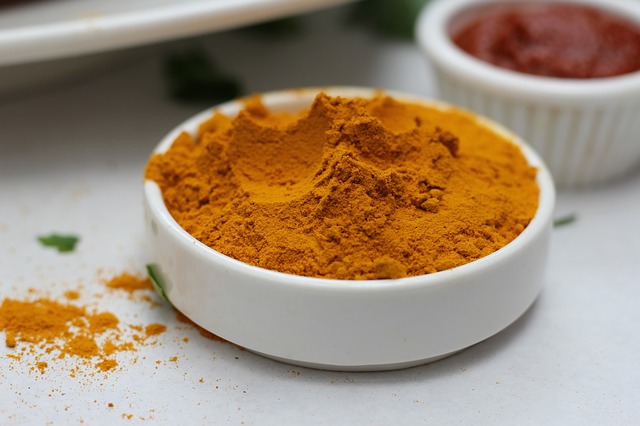For decades, the nutrition world preached a simple mantra: “Eat
healthy.”
But what exactly does that mean?
For one person, it might be cutting carbs. For another,
eating more fats. Yet, for someone else, the key might be balancing gut
bacteria or managing blood sugar spikes.
Welcome to 2025, where the age of one-size-fits-all diets is
officially over – and the future of nutrition is personal, predictive, and
powered by artificial intelligence (AI).
🍽️ The Shift from General to Personalized Nutrition
Traditional diet plans and calorie charts treat humans like
identical machines — assuming the same food affects everyone the same way. But
in reality, our bodies are more like fingerprints — uniquely coded by genetics,
gut microbiomes, hormones, and lifestyle factors.
That’s why two people can eat the same meal – and one loses
weight while the other gains it.
In the U.S., this realization has triggered a massive wave
of interest in personalized nutrition, a science-driven approach that uses data
from your body to determine what foods are best for you.
According to a 2025 report by the International Food
Information Council (IFIC), over 62% of Americans say they’re interested in
nutrition advice tailored to their biology and health goals.
🤖 How AI is Transforming Nutrition Science
AI is the brain behind this revolution. Instead of relying
on guesswork or fad diets, it uses massive datasets to find patterns between
food, genes, and health outcomes.
Here’s how it works:
1. Data Collection:
Apps and devices gather information from multiple sources —
genetic tests, microbiome samples, wearable sensors, and even smart forks or
blood sugar monitors.
2. Pattern Recognition:
AI models then analyze this data, comparing it to millions
of other data points to predict how your body responds to certain foods.
3. Meal Personalization:
Based on these insights, the system recommends meals or
diets that optimize your metabolism,
energy, mood, and long-term health.
It’s like having a digital dietitian who knows your DNA better than you do.
🧫 Genetics + Gut Microbiome = The New Nutrition GPS
Your DNA and gut bacteria hold the keys to how you process
food.
Genetic Testing: Companies like 23andMe and Nutrigenomix
analyze your genes to see how you metabolize carbs, fats, caffeine, and
vitamins. For example, a specific gene variant (CYP1A2) can tell whether coffee
boosts your energy – or spikes your anxiety.
Microbiome Analysis: Meanwhile, startups like Viome and ZOE
focus on the trillions of bacteria living in your gut. These microbes influence
digestion, immunity, and even mood. AI uses microbiome data to predict how your
body reacts to different foods.
Together, these datasets form your Nutritional GPS – guiding you toward meals that align with your unique biology.
📱 Meet Your AI Nutrition Coach
If your smartphone can recommend movies, it can also
recommend meals.
AI-powered apps such as ZOE, Lumen, NutriSense, and Lifesum
are redefining how Americans eat.
Here’s what they do:
- Track blood sugar responses in real time through continuous glucose monitors (CGMs).
- Suggest meals that stabilize energy and reduce hunger.
- Adapt to your goals – whether you want to lose weight, build muscle, or improve gut health.
- Provide insights like, “Your body handles brown rice better than quinoa,” or “You burn more fat when you eat eggs in the morning.”
What once required a team of nutritionists, doctors, and lab
tests can now be delivered via an app and a subscription plan.
⚙️ The Role of Machine Learning in Personalized Diets
Machine learning algorithms – the same kind that drive
self-driving cars and voice assistants – are now predicting human metabolism.
They learn from millions of users over time. For instance:
- If thousands of people with similar microbiome patterns respond well to salmon, the AI may recommend salmon to you.
- If users with your genetic profile experience sugar crashes after oatmeal, the system flags it as a poor choice.
This is how AI nutrition engines continuously evolve — they
don’t just give advice; they learn and improve based on human data.
🌎 Why Americans Are Embracing AI-Driven Nutrition
Several cultural and technological forces are fueling the
trend in the U.S.:
1. Wearable health tech boom – Fitness trackers and glucose
monitors make it easier to gather health data.
2. The pandemic effect – People became more health-aware,
seeking preventive nutrition.
3. AI familiarity – With ChatGPT, Gemini, and Alexa,
Americans are comfortable with AI assistants in daily life.
4. Skepticism toward fad diets – Keto, Paleo, and
intermittent fasting are losing trust; consumers want data-driven results.
The idea of “food as personal data” resonates deeply with
modern consumers – especially millennials and Gen Z, who value
self-optimization and digital convenience.
🧠 The Psychological Edge: Motivation Meets Precision
One overlooked benefit of personalized nutrition is
motivation. When users see concrete data – like how their glucose levels
stabilize or their energy improves – they feel more in control.
AI turns healthy eating into a feedback loop:
- You eat better → you feel better → the AI adjusts your plan → you stay motivated.
This psychological reinforcement is far more powerful than
vague advice like “eat more veggies.”
🚀 Challenges & Ethical Concerns
Of course, this data-driven revolution comes with concerns:
1. Privacy: Storing genetic and microbiome data raises
serious privacy issues. Users must ensure companies comply with data protection
laws.
2. Equity: AI nutrition tools can be expensive — limiting
access for low-income groups.
3. Data Accuracy: Incomplete or biased datasets can lead to
flawed recommendations.
4. Human Oversight: AI isn’t a replacement for medical
professionals. It’s a tool – not a diagnosis engine.
The future of nutrition will likely blend AI precision with human
empathy – combining data science with expert guidance.
🔮 The Future of Eating: Smarter, Not Stricter
By 2030, AI could become the cornerstone of preventive
healthcare – identifying dietary risks before diseases appear. Hospitals may
use nutrition algorithms to design patient diets. Fitness coaches may
collaborate with AI meal planners.
Imagine your smartwatch syncing with your fridge, suggesting
dinner based on your workout and blood glucose.
That’s not science fiction – it’s the next phase of digital
wellness.
In short, the future of eating isn’t about counting
calories; it’s about understanding your biology and letting AI translate it
into everyday choices.
Because when food becomes personal data, every bite brings
you closer to your healthiest self.
📘 Key Takeaway:
Personalized nutrition powered by AI isn’t a passing trend –
it’s a paradigm shift.
It transforms “dieting” from guesswork into a science of
self-understanding.
The more we feed AI our data, the better it feeds us back
health – one algorithmic meal at a time.
































